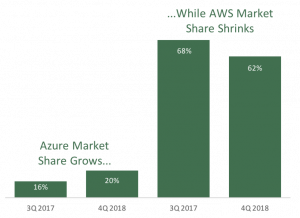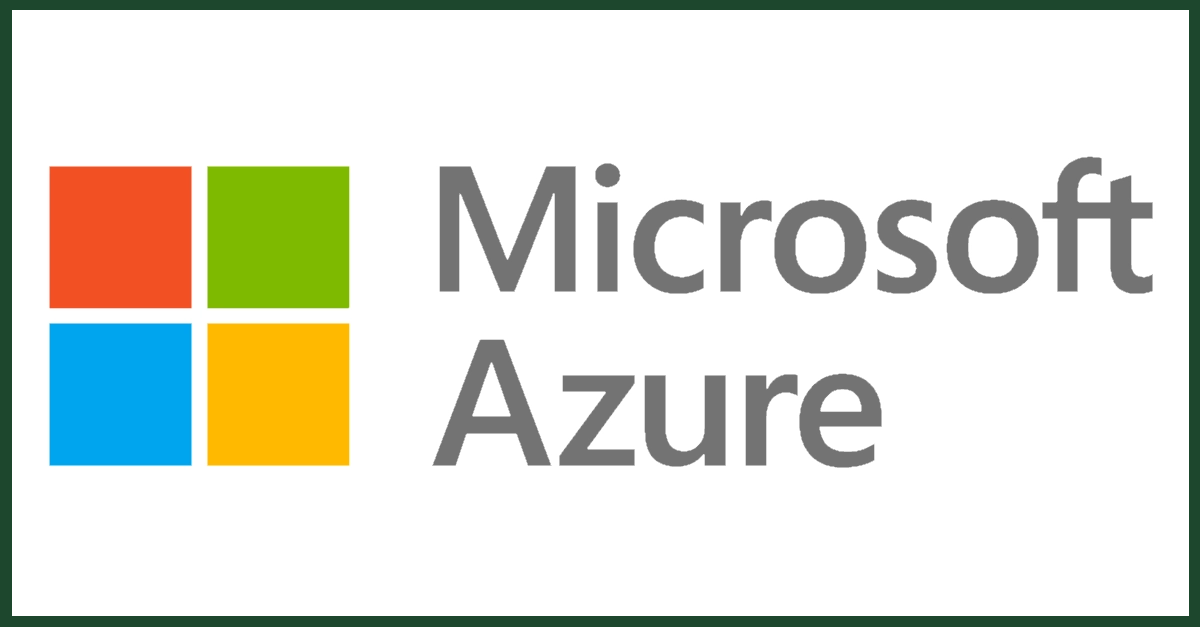Last time, we talked about why engineering loves AWS so much. Now we’re going to look through the other end of the telescope: Why does IT have such an affinity for Azure?
Microsoft’s Cloud Market Share Is Growing
 While Azure has long played second fiddle in the cloud market, it’s been making significant gains on its main rival AWS in recent months. In the fourth quarter of 2017, Azure grew its market share from 16 to 20 percent while AWS dropped from 68 to 62. In the first quarter of 2018, AWS’s cloud infrastructure market share remained flat while Azure’s grew from 10 to 13 percent.
While Azure has long played second fiddle in the cloud market, it’s been making significant gains on its main rival AWS in recent months. In the fourth quarter of 2017, Azure grew its market share from 16 to 20 percent while AWS dropped from 68 to 62. In the first quarter of 2018, AWS’s cloud infrastructure market share remained flat while Azure’s grew from 10 to 13 percent.
Azure Integrates Easily With Other Microsoft Solutions
There’s no two ways about it: Part of the reason Azure has a smaller market share is because you almost never see it somewhere not already leveraging other Microsoft solutions. This can be as simple as Windows, which is present in nearly every enterprise-class business, or SQL Server, another common enterprise solution.
What IT wants is to leverage cloud-based Database as a Service. That means no more sequel server setup, no more tuning hardware for that purpose. Azure provides that as a service, preconfigured, optimized and ready to roll. All they have to do is configure their applications to point in the right direction.
Familiarity Moves Units for Microsoft
But a lot of the time it just boils down to a familiarity with Microsoft. That as a determining factor alone is a mistake. In fact, we strongly believe both AWS and Microsoft can be leveraged together for optimum efficiency. All Azure users have to do is configure their applications to point in the right direction.
Next time we’ll discuss why organizations pick either or AWS or Azure, as well as the objective advantages and disadvantages of each.
Next Steps
- Read how AWS & Azure can help turbocharge your manufacturing organization.
- Subscribe to our blog to stay informed on product development and engineering efficiency topics.
- Schedule a free consultation with a member of SPK and Associates today.







